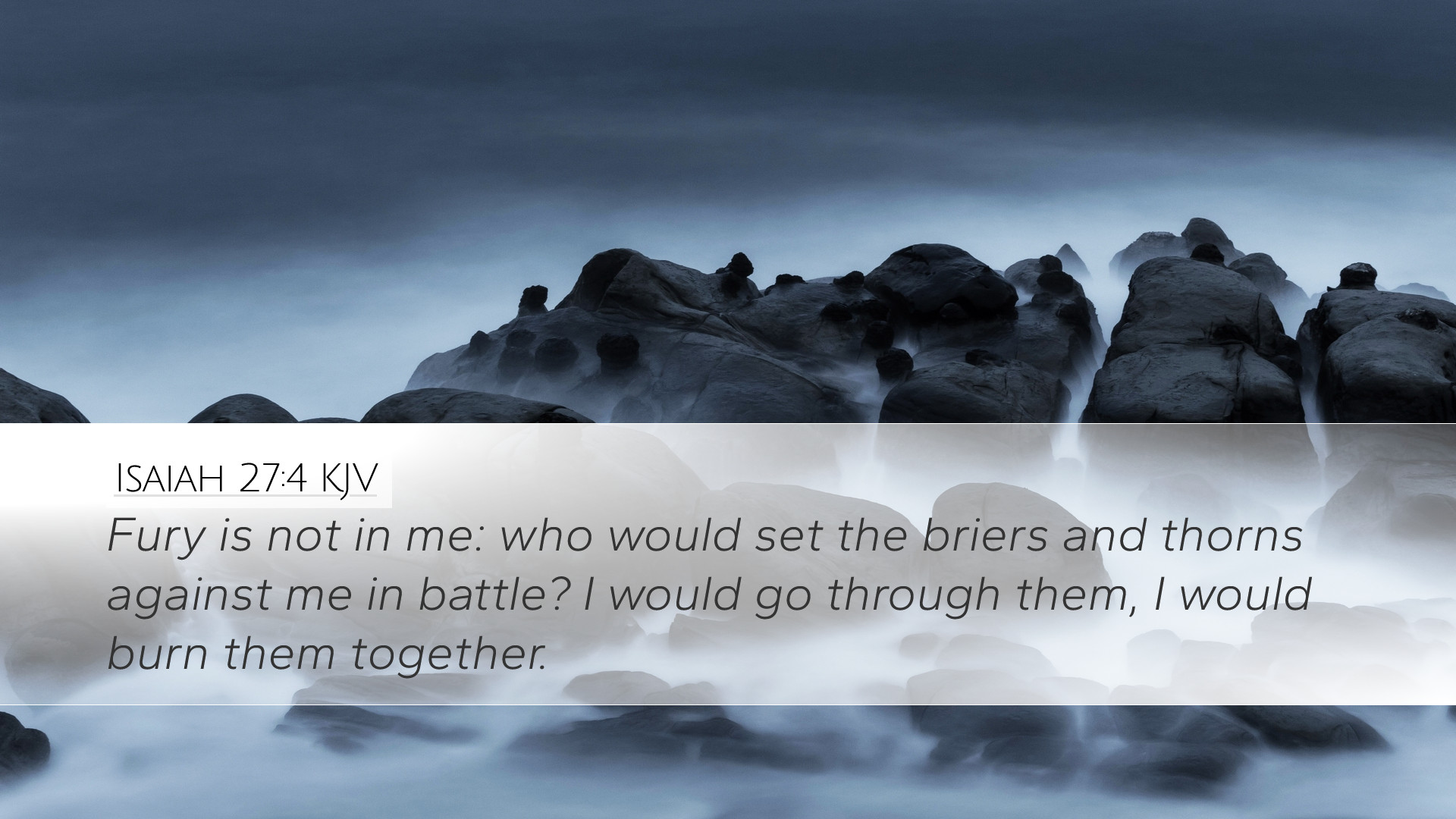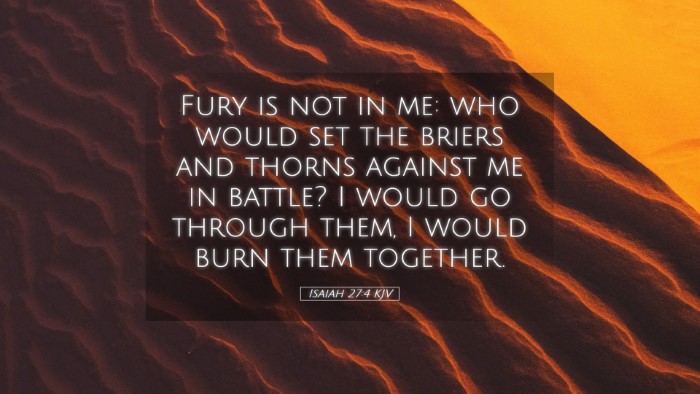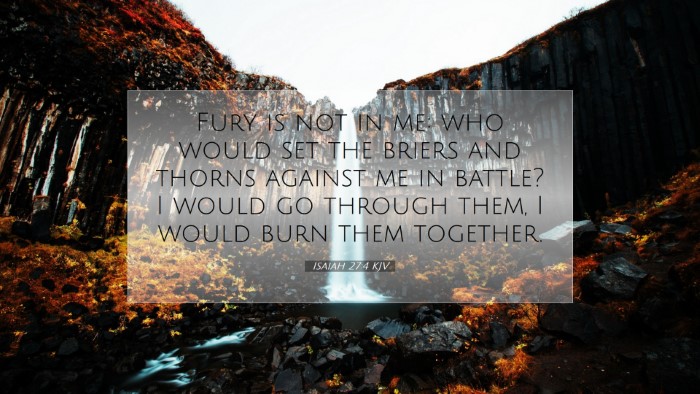Commentary on Isaiah 27:4
Bible Verse: "Fury is not in me: who would set the briars and thorns against me in battle? I would go through them, I would burn them together."
Overview
Isaiah 27:4 presents a remarkable declaration from God that emphasizes His sovereignty and control over the chaos represented by briars and thorns, which symbolize opposition and adversity. This verse is pivotal in understanding God's disposition toward His people and the manner in which He deals with their adversaries.
Analysis of Key Themes
Divine Fury and Its Absence
The phrase "Fury is not in me" reveals God's character as one of mercy and patience rather than impulsive anger. Matthew Henry notes that this characteristic is foundational to understanding God's relationship with humanity—He desires repentance and reconciliation rather than destruction. The reference to God's lack of fury serves as an assurance to the faithful, emphasizing God’s unyielding commitment to His covenant.
The Symbolism of Briars and Thorns
Briars and thorns are often emblematic of obstacles, troubles, and hostile entities in scripture. Albert Barnes elucidates that these symbols can represent both personal struggles and collective national strife. God’s question, "who would set the briars and thorns against me in battle?" implies that no challenge can stand against Him. His omnipotence renders these seemingly formidable adversaries insignificant.
Additionally, Adam Clarke clarifies that briars and thorns can also represent the sinful elements within a person or nation, illustrating the internal conflict that often arises when one chooses sin over God’s righteousness.
God’s Response to Opposition
When God states, "I would go through them, I would burn them together," it underscores His decisive power to overcome opposition. This metaphor of burning illustrates purification and judgment. Matthew Henry notes that the divine capability to "burn them together" suggests comprehensive judgment—nothing can withstand God's righteous wrath when the time comes for reckoning.
- God's ability to confront evil.
- The eventual destruction of sin and rebellion.
- The hope of restoration that follows judgment.
Theological Implications
The absence of fury in God conveys a profound aspect of His grace. Albert Barnes emphasizes that even in conflict, God’s ultimate aim is not destruction but purification and the realization of His purposes. This character of God should inspire a faith response from believers, encouraging them to rely on His strength in times of adversity.
Furthermore, this scripture contributes to the larger narrative of redemption found throughout the book of Isaiah. It calls to mind the overarching theme of God’s patience and willingness to restore His people, even when they face judgment or turmoil.
Practical Applications
For pastors and leaders, Isaiah 27:4 serves as a reminder of the nature of God’s dealings with His people and calls for gentle shepherding of the flock amid struggles. The acknowledgment of God’s absence of fury provides grounds for preaching hope, repentance, and restoration.
Students of the Word may find encouragement in understanding the metaphorical significance of opposition—recognizing their personal "briars and thorns" as challenges that God is more than capable of overcoming. A strong belief in God's goodness and sovereignty should serve as a balm to those hindered by doubt or fear.
Conclusion
In conclusion, Isaiah 27:4 encapsulates a powerful declaration of God's character: one that is steadfast, patient, and ultimately victorious. The divine proclamation serves as a source of hope and assurance for believers, reaffirming that God is always present in our battles, ready to burn away the thorns of adversity and lead us into a place of peace and restoration.


